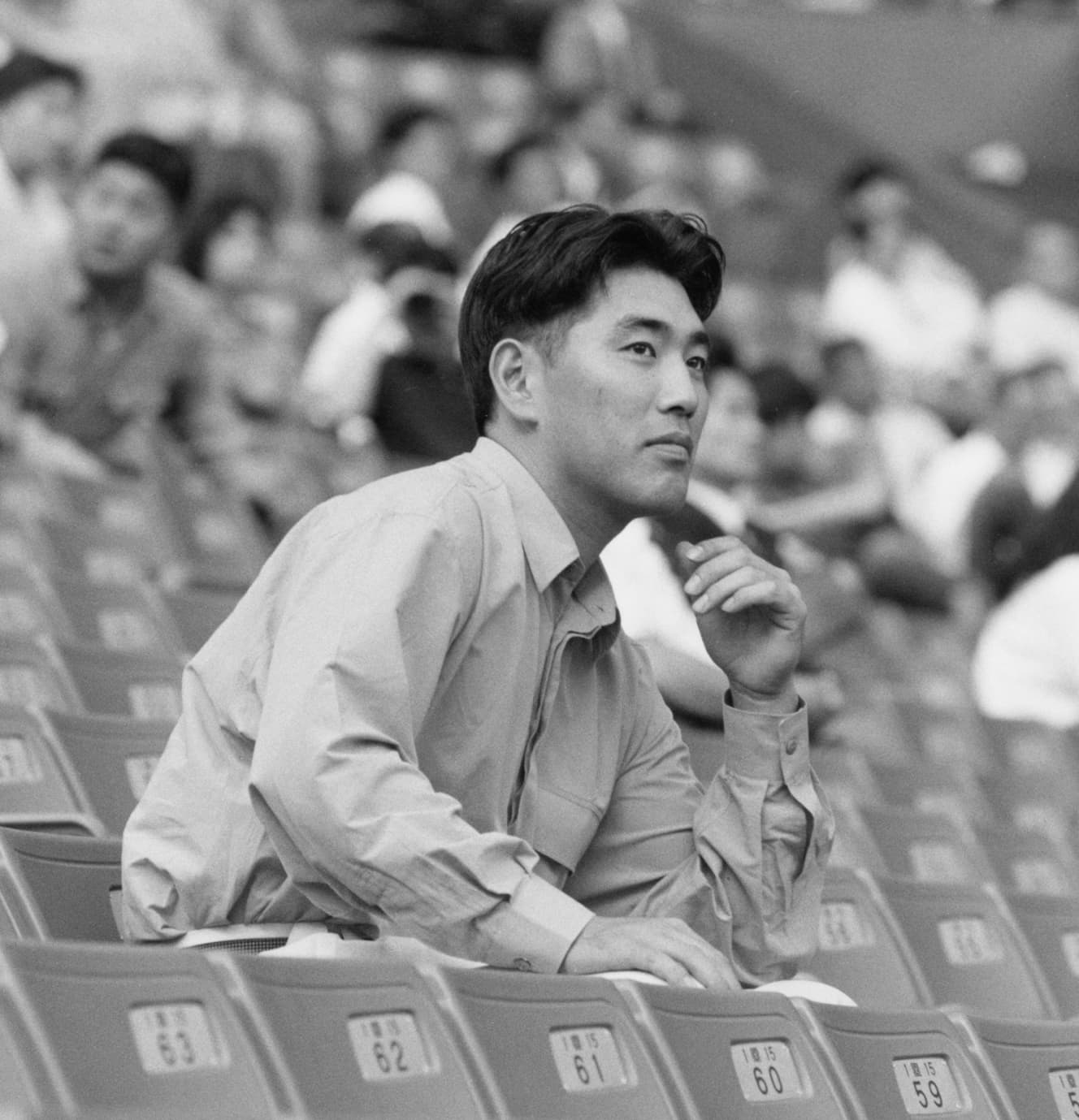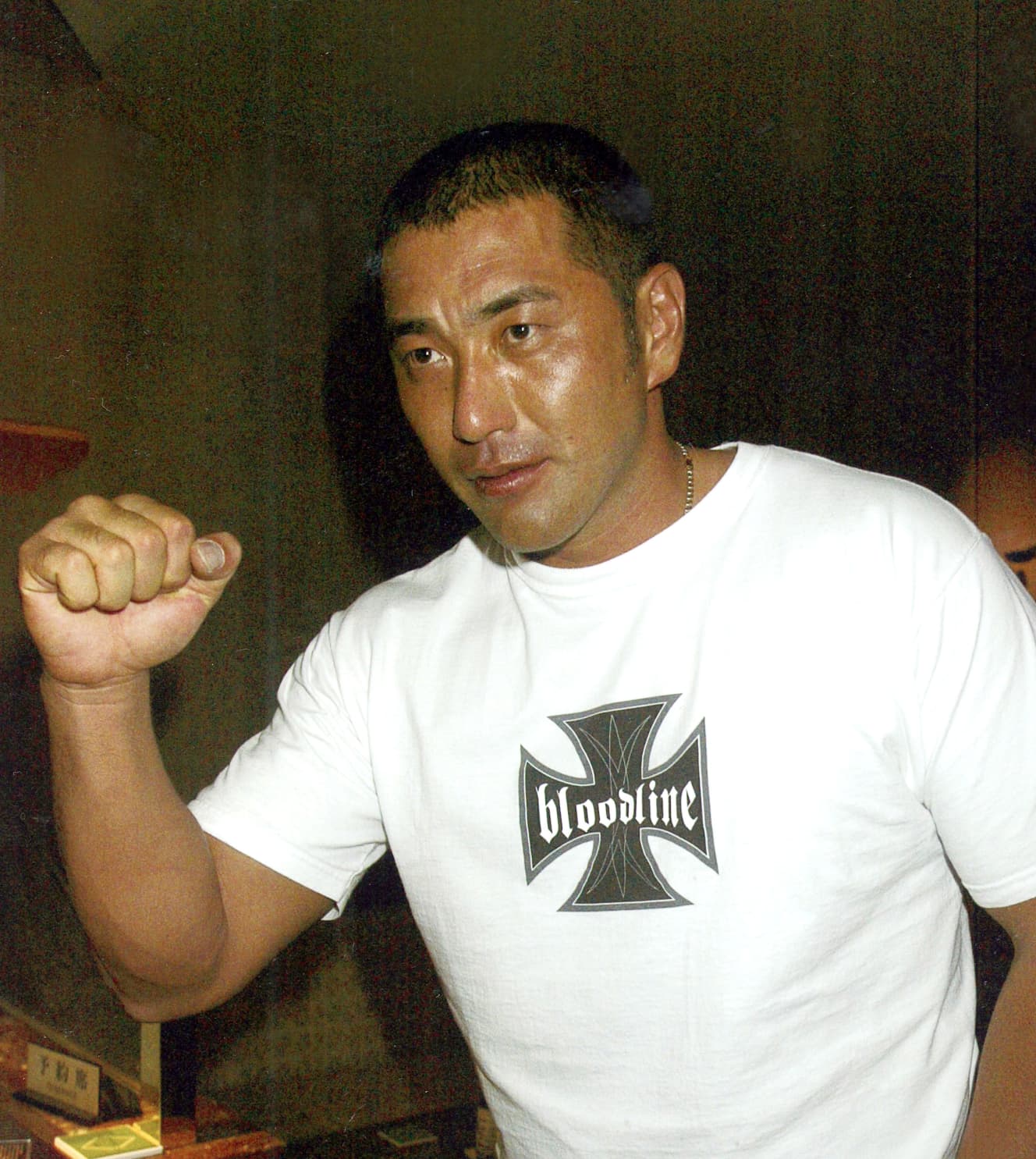Kazuhiro Kiyohara talks about his “bond with his sons” and how his “two sons’ hard work gives him the strength to live
FRIDAY 40th Anniversary Special Interview Project

The man who appeared in a hotel suite in central Tokyo that day stood in front of the FRIDAY reporter, 188 cm tall, weighing well over 100 kg, wrapped in a heavy suit, with a sharp look in his eyes and a grim expression on his face.
The relationship between Kazuhiro Kiyohara, 57, and FRIDAY is deep. The “Bancho Nikki (Diary of a Boss),” which appeared regularly from May 1997 to May 2003, was a well-known project that was published in book form due to the popularity of Kiyohara’s style of writing, which began with the phrase “Oh, yay!
More than 20 years have passed since the series ended, and we asked Kiyohara how he looks back on those days. He began to talk quietly as he quenched his thirst with an iced coffee from the room service.
I think I should appear on FRIDAY for the first time in a long time,” he said.
I was still very much on top of things in my personal life,” he said. But I felt that the fans in the world were happy to see me.
At first, we were quarreling, but as the series progressed, I had mixed feelings. There were times when I was angry, “FRIDAY, you’ve gone this far! and there were times when I was angry, and there were times when I thought, ‘Well, that’s good. No, it’s not good (laughs).
It is true that we had a “take-it-or-leave-it” relationship, and there were times when I discussed it with the reporter at the time and told him, “I want my privacy, too, and I have teammates now, so don’t come in from here. I also thought that by having me photographed, it would be better if the other players were not photographed.
What is certain is that I am the athlete who has appeared in FRIDAY the most (laughs). (Laughs.) This time, too, FRIDAY is celebrating its 40th anniversary, so I thought I would appear in the magazine for the first time in a while.
When a reporter worried about Kiyohara’s health, who felt that his voice lacked the vigor it had when he was still active and engaged in a “fight” with FRIDAY, Kiyohara’s face twisted slightly.
What do you want me to say? I’m fine! I had diabetes, but my blood sugar is under control now. My knees still hurt as usual, but they are under control. ……
I have refrained from drinking alcohol, but after my father passed away in March 2011, I started to drink to the extent that I don’t get drunk to drown out the loneliness. I drink barley shochu with barley tea. If I drink it with green tea, the caffeine in it makes it hard to sleep. ……

The family is still the main support for the Kiyohara of today. In 1923, his second son Katsuji (19), a member of the Keio High School baseball team, played in the Koshien National Championship, and in 2012, his eldest son Shogo (22) became a professional player of note as the No. 4 hitter at Keio University.
My two sons’ hard work is really what gives me the strength to live. I was really happy when Katsuji made it to the Koshien Stadium. I know how wonderful Koshien is, and it is great that Katsuji has stepped on the same field. I hope that he will use it as fertilizer in his life. I was moved by the “Kiyohara call” when Katsuji came to bat.
Shogo had been away from baseball for junior high school and high school, and even though he had a six-year blank, he told me, “I decided to play baseball again because my father would be happy if I played baseball. He really is a filial son, isn’t he? As a parent, I expressed my gratitude for his words. But as a baseball player, I also told him, ‘After all, you have six years free time, so you have to practice 10 or 20 times more than other people.
Shogo grew up with an amazing ability to absorb things. Well, I think it was also significant that he was able to paint himself on a blank canvas because he had not developed any strange habits over the past six years. I am glad that his efforts paid off. Some people say it’s genetic, but no matter how much I teach him, if he doesn’t practice hard, he won’t be able to hit enough long balls into the back screen at Jingu Stadium.
Family Support and a Phone Call from “Daimajin
Kiyohara said that he always comes to the stadium to support his two sons.
Whenever my two sons go to bat, I get more nervous than when I go to bat myself,” he said. I know their pitch distribution, so I want to say, ‘Next is a slider! But they are doing their best, and I am happy enough just to be able to see that, so I don’t say anything and cheer them on.
Although he and his ex-wife Aki (55) divorced in 2002, they are still parents to their sons. The bond between them has deepened through the process of supporting them, and Aki says that their family relationship is now the best it has ever been.
I feel the same way. I am glad that I have worked so hard, even though I had to say goodbye and meet everyone again, and even though the rehabilitation process with drugs was really painful. Because of my position, I sometimes turn the whole of Japan against me. Among them, I believe that my family is the only one who will stand by me. That is why I want to take good care of them, and I think they are important, too.
Not only my family, but also my friends were a big part of my life. Daimajin (Lord Hiroshi Sasaki, 56) has called me from time to time, saying, “He’s worried about you,” or “A senior baseball player wants to see you.
We don’t call each other that often, but I enjoy the time we spend talking every once in a while. We even go out for dinner. He likes to fish, so I guess we eat sushi a lot.”
He is close with his family and has friends who support him. After overcoming rehabilitation, Kiyohara is now steadily regaining a second life.
In the second part of the long interview, Kiyohara discusses his future as a leader and his thoughts on the current baseball world in Japan and Shohei Otani.




From the January 3, 10, and 17, 2025 issue of FRIDAY
PHOTO: Takehiko Kohiyama